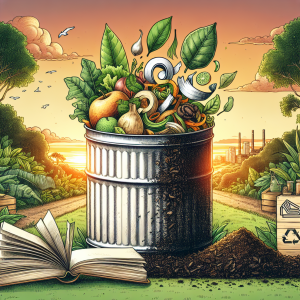Introduction
As the world continues to grapple with environmental challenges, recycling has emerged as a crucial method for reducing waste and conserving resources. This article explores some of the most effective recycling practices from around the globe, highlighting strategies that can inspire nations and communities to improve their recycling efforts.
1. Sweden: A Leader in Waste Management
Sweden is often cited as a model for efficient recycling and waste management. The country recycles about 99% of its waste, with less than 1% ending up in landfills. This impressive figure is attributed to Sweden’s advanced waste-to-energy systems and comprehensive recycling programs that encourage citizens to participate actively.
Key Practices:
-
- Source-separated waste collection to maximize recycling.
-
- Public education campaigns on recycling practices.
-
- Use of waste-to-energy plants to convert non-recyclable waste into energy.
2. Germany: A Model of Circular Economy
Germany has established a robust recycling system characterized by its “Green Dot” program, which requires producers to take responsibility for the packaging they put into the market. The country recycles around 65% of its waste, making it a global leader in recycling efficiency.
Key Practices:
-
- Extended producer responsibility (EPR) for packaging materials.
-
- Comprehensive public recycling bins for easy access.
-
- Incentives for businesses to reduce packaging waste.
3. Japan: Community Engagement in Recycling
Japan’s recycling practices are heavily influenced by community involvement and government regulations. The country boasts a recycling rate of around 60%, with strict sorting regulations that residents must follow.
Key Practices:
-
- Mandatory recycling laws that require households to sort waste into categories.
-
- Community seminars to educate residents about recycling.
-
- Local incentives for reducing waste and participating in recycling programs.
4. South Korea: Innovative Technology for Recycling
South Korea has implemented innovative technologies to boost its recycling rates, achieving approximately 53%. The country’s smart waste management systems utilize RFID technology to track and encourage recycling.
Key Practices:
-
- Smart bins equipped with sensors to optimize collection routes.
-
- Incentives for households based on the amount of waste they recycle.
-
- Public awareness campaigns that highlight the importance of recycling.
Conclusion
As demonstrated by these countries, successful recycling programs require a combination of government support, community engagement, and innovative practices. By learning from global best practices, nations can work towards a more sustainable future and reduce their environmental impact. The path to effective recycling is a collaborative effort, making it essential for all stakeholders to participate actively.




